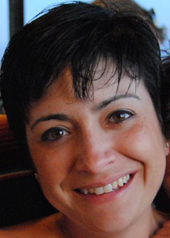Kara Davis, DO
2015-2017
Project: Single-Cell Characterization of Phenotype and STAT Signaling in BCP ALL
 |
|
Although cure rates for childhood leukemia have improved dramatically in recent decades, some forms of leukemia remain difficult to treat, with high relapse rates and poor response to therapy. Current features that aid clinicians in predicting risk of relapse for any given child include clinical and biological characteristics of the leukemia at diagnosis and early response to chemotherapy by measurement of minimal residual disease. Despite using these features to provide prognostic information, there is still a lack of knowledge about the cells that are resistant to chemotherapy and cause future relapse.
Kara Davis, DO, performs research at Stanford University on protein expression in B-cell precursor acute lymphoblastic leukemia (BCP ALL). Dr. Davis’s work focuses on identifying differences between normal, healthy B-cells and those involved in the development of BCP ALL in order to gain perspective on what makes BCP ALL cells cancerous and how to stop them. During a normal cell’s development, there is often a period of time where cells are in a kind of “survival mode.” At this time, these cells are especially resilient. Dr. Davis hypothesizes that in BCP ALL, the cancerous B-cells also shift into “survival mode,” allowing them to be more resistant to treatment and increasing the chance of relapse. Her aim is to gain a deeper understanding of how cancerous B-cells develop and what genetic signaling pathways are altered in the cancer that might be targetable to halt this disease.
As the result of this project, Dr. Davis made significant contributions to the understanding of BCP ALL:
- 1 patent for a single-cell diagnostic predictive of ALL relapse
- 1 model to assist in the prediction of BCP ALL relapse potential
- 1 combination therapy tested in BCP ALL cellsYoung Investigator Program
